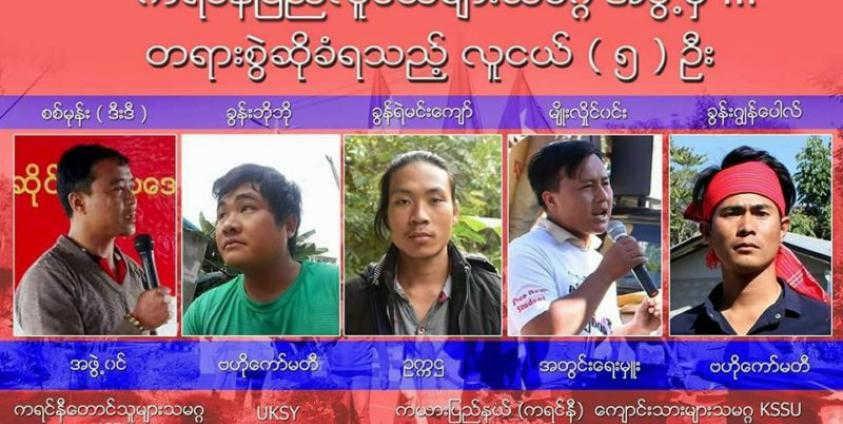Five youths have been ordered to appear at a court in Loikaw, Kayah (Karenni) State on January 5 for protesting against the Tatmadaw over the alleged killing of three members of the Karenni National Progressive Party (KNPP) and one civilian.
The Loikaw Myoma Police Station filed the charges after the protest was held in Loikaw, Kayah State on December 22.
Khun Ye Min Kyaw, one of the protesters, said they will not appear at the court until they have received an official summons from the court.
“We won’t go without receiving an official summons. There’s no reason to go, no matter how they were going to charge us,” said Khun Ye Min Kyaw, chairman of the Karenni State Students’ Union.
The authorities will follow the procedures since they have been charged under a criminal law, according to Ko Kyaw Wunna Aung, Law Home Law Firm’s director.
“It’s just a normal police procedure. They came to fetch them personally instead of sending the summons. The summons should be sent in accordance with the charges. For example – Who will send it? Will the court or the police station send it? If the police station actually filed the charges to the court, the court should send the summons,” he explained.
Khun Ye Min Kyaw said he still cannot accept the laws under the 2008 Constitution.
“We have no complaints over this [issue]. They can do what they have to do. If they sent us a summons, we are ready to face them,” he continued.
It would be possible that they summoned verbally as part of social obligations since Section 19 is a criminal law, Ko Kyaw Wunna Aung added.
The Union of Karenni State Youth (UKSY) issued a statement on December 31 to urge the Tatmadaw, the state government, and the MPs to take accountability and responsibility in finding out the truth on the death of three KNPP members and one civilian, which is believed to be a homicide, and solve the case with justice.
Section 19 of the Peaceful Assembly and Peaceful Procession Law stipulates that anyone who holds an assembly or a procession without informing the authorities can receive a maximum sentence of three-month imprisonment or a fine of Ks 3,000 or both.







